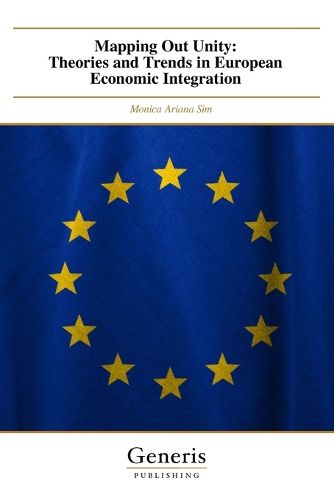Readings Newsletter
Become a Readings Member to make your shopping experience even easier.
Sign in or sign up for free!
You’re not far away from qualifying for FREE standard shipping within Australia
You’ve qualified for FREE standard shipping within Australia
The cart is loading…






"Mapping Out Unity - Theories on European Economic Integration" offers an insightful exploration of the theoretical frameworks that have shaped the European Union (EU) and the broader European integration process. This book explores key integration theories, including federalism, functionalism, and neofunctionalism, to examine the evolution of the European Union and its complex political and economic relationships. The author examines notable figures such as David Mitrany, Ernst Haas, and Jean Monnet, whose contributions have been essential in shaping European integration. Additionally, the book addresses contemporary issues, including multilevel governance, regional interdependence, and the challenges posed by Brexit and COVID-19. With a particular focus on Romania's post-accession integration, it offers a thorough analysis of how theories continue to influence the EU's future trajectory. The work serves as a vital resource for scholars, policymakers, and anyone interested in understanding the forces driving Europe's ongoing integration process.
$9.00 standard shipping within Australia
FREE standard shipping within Australia for orders over $100.00
Express & International shipping calculated at checkout
"Mapping Out Unity - Theories on European Economic Integration" offers an insightful exploration of the theoretical frameworks that have shaped the European Union (EU) and the broader European integration process. This book explores key integration theories, including federalism, functionalism, and neofunctionalism, to examine the evolution of the European Union and its complex political and economic relationships. The author examines notable figures such as David Mitrany, Ernst Haas, and Jean Monnet, whose contributions have been essential in shaping European integration. Additionally, the book addresses contemporary issues, including multilevel governance, regional interdependence, and the challenges posed by Brexit and COVID-19. With a particular focus on Romania's post-accession integration, it offers a thorough analysis of how theories continue to influence the EU's future trajectory. The work serves as a vital resource for scholars, policymakers, and anyone interested in understanding the forces driving Europe's ongoing integration process.